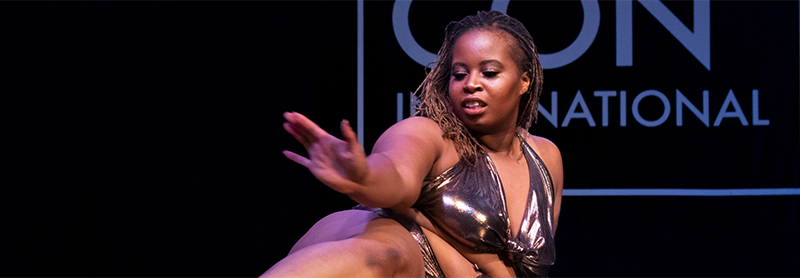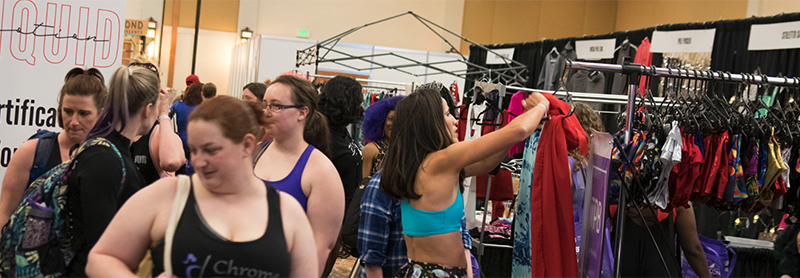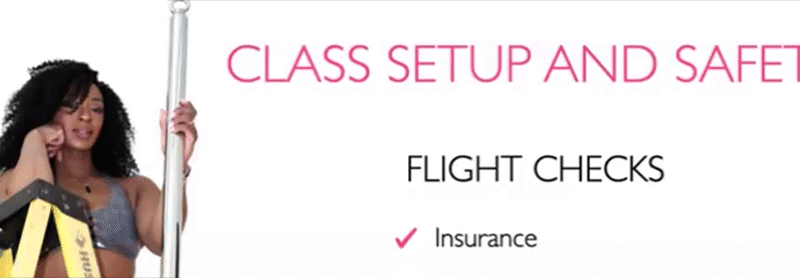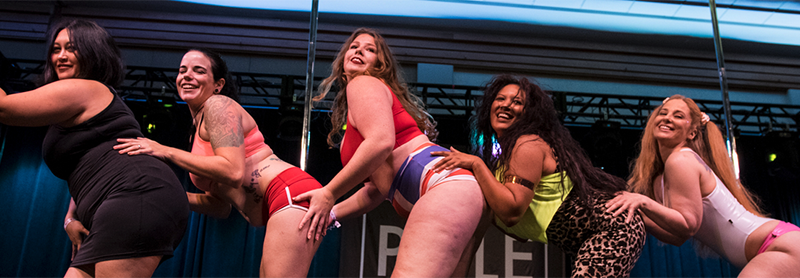A train-cation is a trip (usually away from home) where you focus for a specific…

Pros and Cons of Drop-in versus Semester Classes
If you own or run a pole dance studio, you will undoubtedly have to make the decision on what type of class structure to provide. Typically, studios will provide drop-in classes, semester/series-type classes, or a combination of both.
In this post, we will focus on the pros and cons of drop-in classes versus semester classes to help you decide what’s best to offer your clients.
Drop-In Classes
A drop-in class is a one-time class. Clients are not committing to a series of classes when they take drop-in classes.
In pole dance studios, drop-in classes are very common. Some examples could include intro to pole dance, tricks classes, and mini-choreo classes. Drop-in classes are usually an hour in length and should include a warm-up and cool-down.
Pros
- Drop-in classes are great for new clients. These types of classes help get your new clients in the door. Think “intro to pole” classes. For first-timers or newbie polers, it’s a good idea to have an offering available after the drop-in class to get them to come to your studio again.
- Drop-in classes are also great for tourists or visitors to your studio. If you live in a vacation city, you can offer high-energy and fun party-type classes!
- You can charge more per class for drop-in classes since they are one-off classes. Some students will appreciate that they can pay as they go with minimal commitment, even at the higher price.
Cons
- The major con of drop-in classes versus semester-based classes is that students’ motivation to keep returning may be limited. This is why it is important to charge a higher price for drop-in classes. It’s also important to establish a community at your studio so students will keep returning!
- Drop-ins are often offered within unlimited membership packages. But the problem with this model is that some students will overuse it and fill up all the classes. Therefore, when using the drop-in model, we recommend providing caps or offering class passes, instead of unlimited memberships, to get more money upfront and a bigger commitment from your studio’s clients.
Semester classes
Semester classes are a series of classes offered as a package. These types of classes are very common in aerial studios or circus schools. In pole studios, a semester is usually a series of classes occurring once per week over 4-6 weeks. These classes are most often offered as leveled classes but sometimes can be choreo classes or focused on a certain discipline of pole (i.e., low flow series).
Pros
- The major pro of semester classes in pole studios is that students are committing to a longer-term involvement. They are paying more up front. They will be more motivated to attend each class, whether it be tricks-based or choreo-based, so as not to fall behind.
- Even though the financial commitment of semester classes is higher, you can charge less per class, motivating students to opt for semester classes over drop-in classes.
- You can design leveled classes to build upon each other. For example, students who graduate from Level 1 Pole will be highly motivated to continue on to Level 2 Pole and so on.
Cons
- Semester classes can be difficult for students who have changing schedules, travel often, etc. They may want to commit, but can’t for various reasons. Therefore, it’s important to have several drop-in options for these types of students.
- Semester classes can be difficult to make-up for students who have to miss a class. That’s why it is important to have a cancellation and make-up policy (see below).
In conclusion, a mix of drop-in and semester classes is likely best for your studio. It’s up to you to determine your offerings based on your studio’s mission (competition/fitness training vs. sexy dancing), type of location (big tourist city vs. small town), and type of ideal clients.
No matter what class model you follow, be sure to provide students with a written policy for taking classes at your studio. Consider your cancellation and make-up policies and how they fit into that model. Cancellation policies require a balance between what’s fair for your students and what’s financially efficient for your studio.



